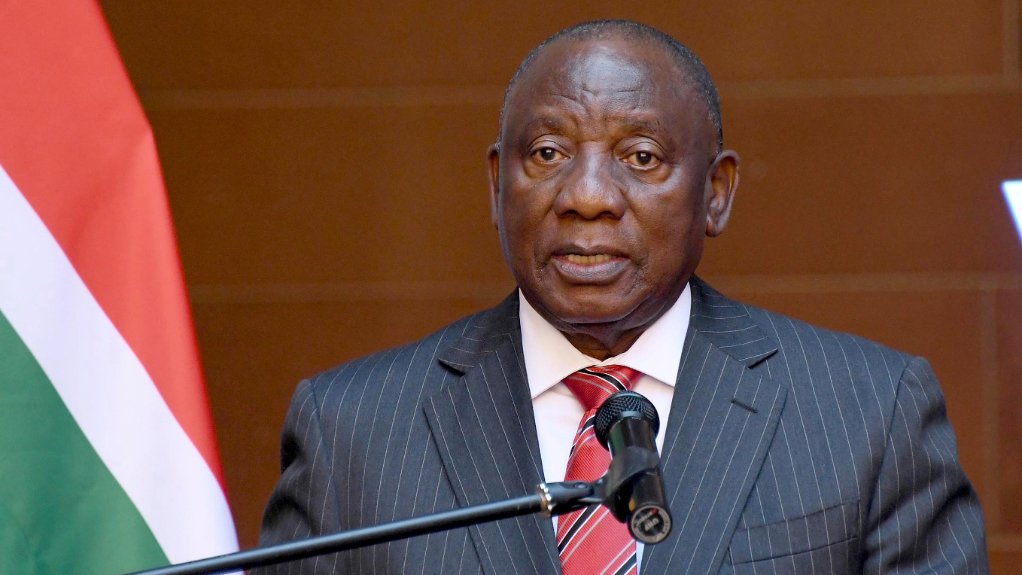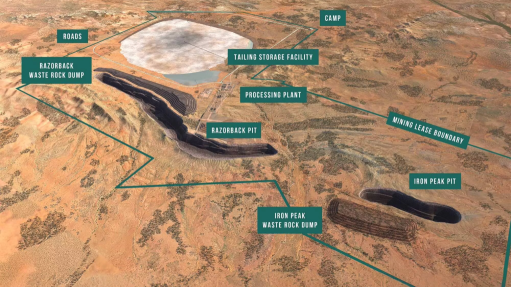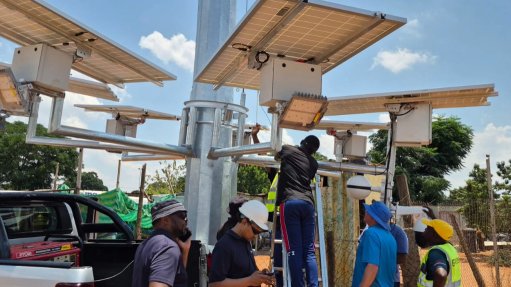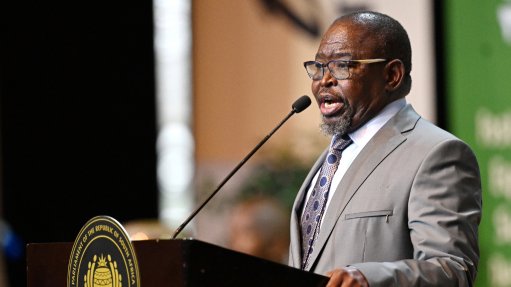CDE calls on Ramaphosa to show how GNU is enacting much-needed reforms
The Centre for Development and Enterprise (CDE) has urged President Cyril Ramaphosa to use the upcoming State of the Nation Address (SoNA) on February 6 to show how the Government of National Unity (GNU) plans to enact far-reaching and urgent reforms essential for faster job-creating growth.
“The GNU was formed without an agreement on a programme of action and, nearly nine months later, the promised policy agenda laying out priorities for action by the GNU has yet to be agreed,” CDE executive director Ann Bernstein said in a statement on February 4.
“We have seen some improvements in governance, and in the performance of critical agencies, not least Eskom, Transnet and Home Affairs. While it is important to acknowledge these ‘green shoots’, the most striking thing about the GNU is just how little policy reform is being contemplated,” Bernstein said.
She said the formation of the GNU gave South Africa hope of consolidating its constitutional democracy, the rule of law and building a more prosperous, inclusive future.
“But its mere existence isn’t enough to deliver results. To assume that the perpetuation of the policies of the previous government will achieve the growth, development and inclusion we need is a grave mistake,” she cautioned.
According to the CDE, tweaking existing policies is not enough. South Africa requires a fundamental departure from the policies and approaches that have led to crises on almost every front.
For the past year, the CDE has been working on Agenda 2024, a series of reports on five priority areas that the new government needs to focus on for immediate action.
The CDE has urged Ramaphosa to announce significant catalytic reforms, bold signals of a new approach in several key areas.
Firstly, the CDE said that fixing the State could only be achieved with a leaner, more efficient government. It said that Ramaphosa missed the opportunity to trim down his bloated Cabinet, but there was still a need to streamline the Presidency and ensure much better Cabinet processes to strengthen evidence-based decision-making.
The CDE said there should be a determined effort to appoint the best possible people to the most important jobs in the public sector, such as directors-general and top executives at State-owned companies such as Transnet.
In last July's Opening of Parliament address, Ramaphosa promised to “… put in place systems to ensure that capable and qualified people are appointed to senior positions in municipalities”. However, the CDE said, it was still waiting to hear what progress had been made to achieve this.
Secondly, the CDE noted that a weak State, such as South Africa, needed to free up markets for development.
In last July's address, Ramaphosa said, “We will pursue a smart industrial policy that focuses on the competitiveness of our economy and incentivises businesses to expand our exports and create jobs.”
The CDE said it supported this, but that it wanted to hear what progress had been made.
“What specific steps are being taken to subject state-owned enterprises to competition, and to change the focus of industrial policy from protectionism to helping South African firms become more competitive in global markets?
“It is time to ditch the masterplan approach that tends to encourage protectionism and, instead, foster an export-led growth model that will grow the economy and expand employment,” the CDE said.
Third, to build a new approach to mass inclusion, the CDE is of the opinion that it is vital to remove the regulatory shackles holding back the emergence and growth of small firms.
“We should cease the process of extending wage agreements to firms that were not party to those agreements. We should stop asking officials, most of whom have little knowledge of business, to identify and assist small firms.
“Instead, we should use scarce government funds much more effectively to fuel the growth of small firms,” the CDE suggested.
It noted that private institutions should compete for large chunks of State money so they could support small firms with potential. They should report publicly about how they use the funds and what they were able to achieve with them.
Fourth, the CDE emphasised that the most important thing Ramaphosa must do to help tackle the fiscal crisis was also the hardest, and that was to resist the temptation to commit government to more spending programmes.
It said Ramaphosa needed to recognise just how stretched the public finances were, and the damage any further commitments would do in the absence of higher growth rates.
“He needs to focus much, much more on improving the quality of public spending. Unfortunately, there is a great deal of room for this,” the CDE said.
Fifth, the CDE called for sustained faster growth, which it believes is impossible without strengthening the rule of law. This requires reforming the composition and functioning of the Judicial Service Commission so that excellent lawyers are encouraged to apply for judicial office.
“South Africa urgently requires a highly effective National Prosecuting Authority (NPA) that is able to roll back the culture of impunity that has become entrenched among the country’s elites,” the CDE said.
It pointed out that that it had recommended that Ramaphosa appoint a retired judge to conduct an enquiry into the leadership, performance, structure and independence of the NPA, that he respond to the August 2023 request by the head of the NPA to suspend a regional Director of Prosecutions, and that he instruct the Department of Justice to immediately give the NPA full access to the Zondo Commission archive.
In his July 2024 parliamentary opening address, Ramaphosa acknowledged that “… without unity, cooperation and partnership, our efforts to end poverty, unemployment and inequality will not succeed”.
However, the CDE is of the opinion that events over the last few weeks have shown that the GNU is a long way off from achieving the unity and partnership it needs to make a real impact.
“The point of the GNU was to move away from policies and legislation of the last parliament, not to implement them as if nothing had changed. The country needs something new that will help us move beyond mere talk about growth,” Bernstein said.
She asserted that, in his upcoming SoNA, Ramaphosa needed to acknowledge that the country was more important than party and that, for South Africa to work, it needed new policies and approaches – not the same old policies.
“The GNU has to represent more than the failed policies of the past. South Africa is in deep trouble in a volatile and unfriendly global environment. [Ramaphosa] cannot continue to act as if his party has the majority of the vote and must draw on the ideas and wisdom of his main partners,” Bernstein said.
She warned that the GNU ‘honeymoon’ would not last much longer.
“The promise of the GNU will remain elusive if we continue with policies that have delivered nothing but deepening crises on almost every front.”
“The GNU needs its own programme of action, policies and priorities that build on a common and honest diagnosis of why South Africa is in deep trouble and therefore what must change. Without this, it is hard to see how the GNU survives. Or even why it should. That should worry all of us,” Bernstein said.
Article Enquiry
Email Article
Save Article
Feedback
To advertise email advertising@creamermedia.co.za or click here
Press Office
Announcements
What's On
Subscribe to improve your user experience...
Option 1 (equivalent of R125 a month):
Receive a weekly copy of Creamer Media's Engineering News & Mining Weekly magazine
(print copy for those in South Africa and e-magazine for those outside of South Africa)
Receive daily email newsletters
Access to full search results
Access archive of magazine back copies
Access to Projects in Progress
Access to ONE Research Report of your choice in PDF format
Option 2 (equivalent of R375 a month):
All benefits from Option 1
PLUS
Access to Creamer Media's Research Channel Africa for ALL Research Reports, in PDF format, on various industrial and mining sectors
including Electricity; Water; Energy Transition; Hydrogen; Roads, Rail and Ports; Coal; Gold; Platinum; Battery Metals; etc.
Already a subscriber?
Forgotten your password?
Receive weekly copy of Creamer Media's Engineering News & Mining Weekly magazine (print copy for those in South Africa and e-magazine for those outside of South Africa)
➕
Recieve daily email newsletters
➕
Access to full search results
➕
Access archive of magazine back copies
➕
Access to Projects in Progress
➕
Access to ONE Research Report of your choice in PDF format
RESEARCH CHANNEL AFRICA
R4500 (equivalent of R375 a month)
SUBSCRIBEAll benefits from Option 1
➕
Access to Creamer Media's Research Channel Africa for ALL Research Reports on various industrial and mining sectors, in PDF format, including on:
Electricity
➕
Water
➕
Energy Transition
➕
Hydrogen
➕
Roads, Rail and Ports
➕
Coal
➕
Gold
➕
Platinum
➕
Battery Metals
➕
etc.
Receive all benefits from Option 1 or Option 2 delivered to numerous people at your company
➕
Multiple User names and Passwords for simultaneous log-ins
➕
Intranet integration access to all in your organisation




















